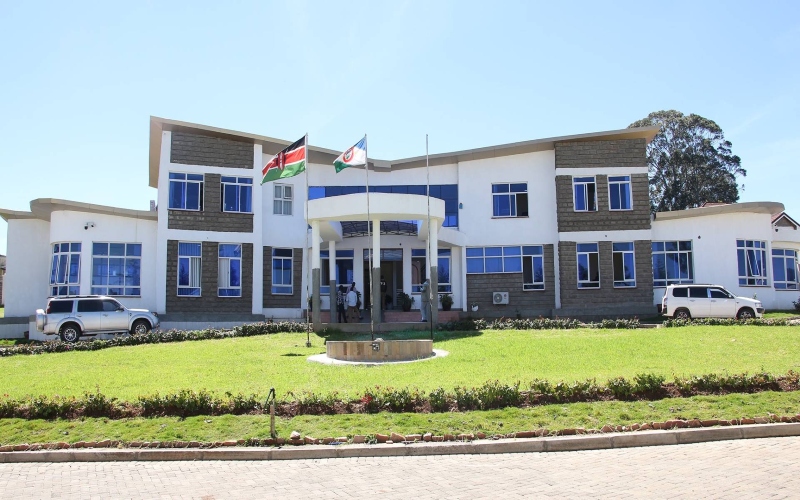Bomet, Homa Bay, Kirinyaga among counties with highest hiring imbalances - report

The report shows that 12 counties have failed to meet the statutory requirement that at least 30 per cent of entry-level positions be reserved for applicants outside the dominant ethnic group.
A new Senate report has laid bare how ethnic favouritism dominates recruitment in several county governments, leaving job seekers from minority communities with little chance of employment.
The findings show that devolution, intended to broaden access to public jobs, has instead reinforced ethnic enclaves in some counties.
More To Read
- Senate’s handling of Nyaribo impeachment raises questions on oversight role, procedures
- Senate targets KEMSA in plan to turn devolved institutions into executive agencies
- Audit flags leadership vacuum at Garissa University since 2022
- Why City Hall moved hospital accounts to Sidian Bank- Sakaja
- Counties decry handling of hospitals under SHA, accuse Health Ministry of overreach
- Gachagua, governors, and MPs under probe by NCIC for inflammatory statements
Bomet, Homa Bay, Samburu, Elgeyo Marakwet, and Kirinyaga counties are the most affected, with their workforces composed almost entirely of people from the dominant local communities.
In Bomet, Kalenjins account for 97.28 per cent of county employees, while Homa Bay has 96.98 per cent Luo staff. Samburu County has 96.65 per cent Samburu employees, Elgeyo Marakwet 96.22 per cent Kalenjin, and Kirinyaga 96 per cent Kikuyu.
Counties such as Nandi, Nyamira, Kisii, Nyandarua, and Nyeri follow closely, each having more than 90 per cent of their workforce from one ethnic group.
Others flagged include Murang’a, Baringo, Makueni, Wajir, Kakamega, Meru, and Kitui, showing a widespread pattern of exclusion.
The report further shows that 12 counties have failed to meet the statutory requirement that at least 30 per cent of entry-level positions be reserved for applicants outside the dominant ethnic group.
These counties include Kwale, Kilifi, Mandera, Machakos, Uasin Gishu, Garissa, Laikipia, Bungoma, Vihiga, Kisumu, Migori, and Kajiado. Section 65 of the County Governments Act and the National Cohesion and Integration Act are clear: no single ethnic group should hold more than a third of positions in public offices.
Yet, most counties continue to ignore these laws.
Ethnic exclusivity is not limited to junior roles. The report shows that in Elgeyo Marakwet, Kericho, Makueni, Nyandarua, and Vihiga, county executive committee members and chief officers are almost entirely drawn from one ethnic community.
The Auditor-General’s office has consistently highlighted these violations over the last 13 years of devolution. According to the report, Public Service Boards in counties and county assemblies have repeatedly breached recruitment laws.
Speaking about the challenges of diversifying county employment, Bomet Governor Hillary Barchok said: “There is a lot of politics. We face a lot of resistance from the local community,” noting that low applications from non-locals further complicate hiring.
The report also raises concerns over compliance with provisions protecting persons with disabilities.
42 counties have failed to allocate at least five per cent of executive and chief officer positions to PWDs, contrary to Article 54(2) of the Constitution and the Persons with Disabilities Act. Only Lamu, Taita Taveta, Wajir, Turkana, and Nandi have met this requirement.
Gender representation remains another area of non-compliance. Kisumu, Kisii, Isiolo, Nyeri, Laikipia, Wajir, and Embu counties have not ensured that no more than two-thirds of members in public bodies belong to the same gender.
Counties have been given 18 months to correct these breaches. The Senate report urges wider and more inclusive advertising of job opportunities, using local and national radio, television, social media, and community leaders to reach minority groups, youth, women, and persons with disabilities.
“All the county governments should use alternative means of job advertisements, such as local and national vernacular radio stations, social media, and local leaders, to reach a wider pool of candidates by doing targeted civic education and advertising the recruitment opportunities,” the report states.
“That all county governments should use targeted job advertisements encouraging minority communities, youth, women, and persons with disabilities to apply and be considered,” it adds.
Top Stories Today















































